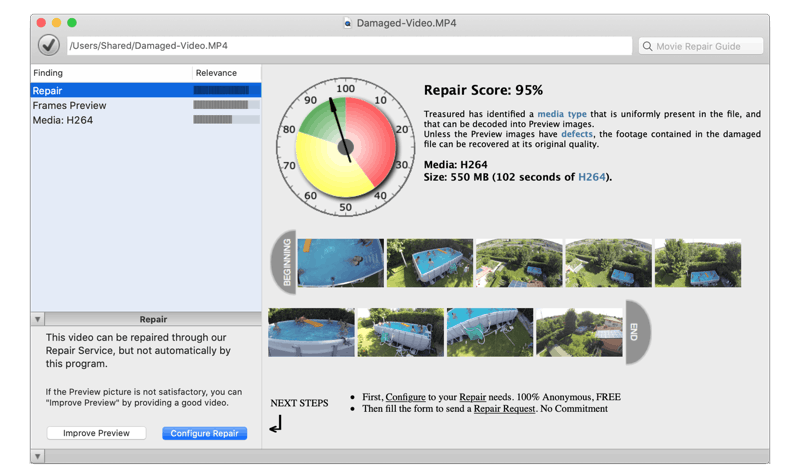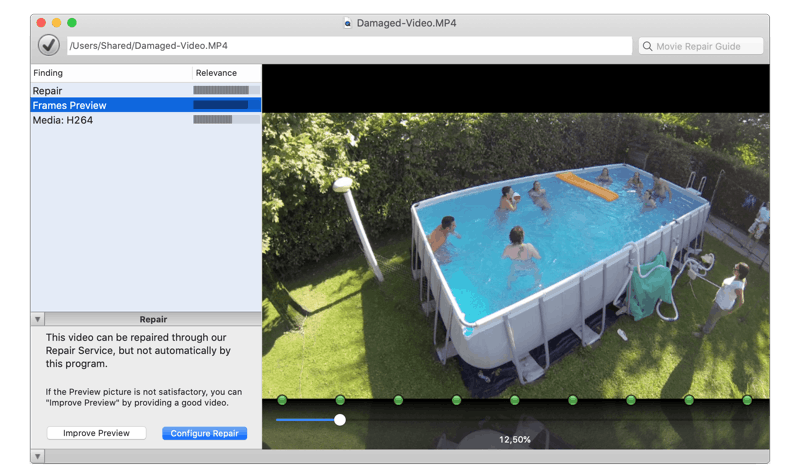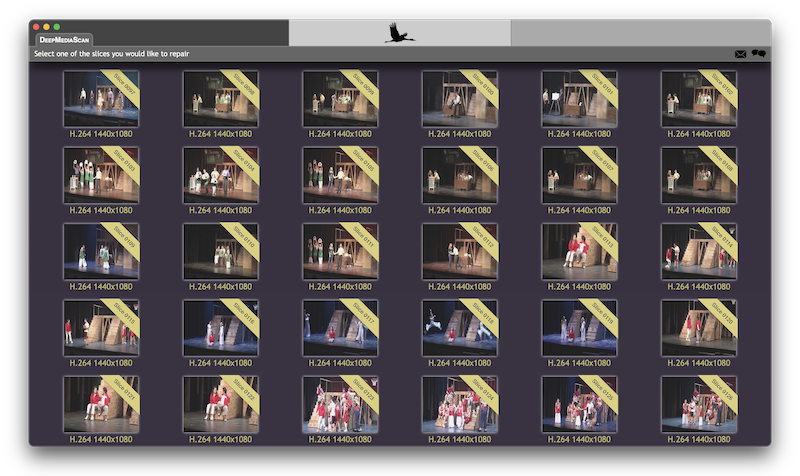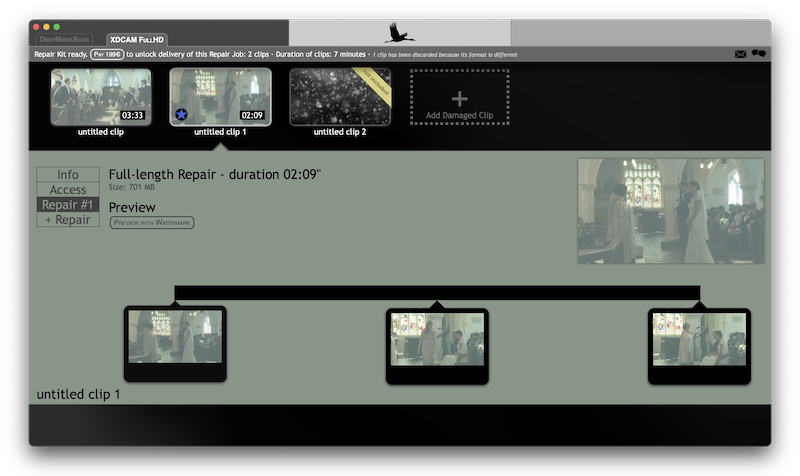Unsupported Browser
This page probably won't work great in Internet Explorer. We generally only support the recent versions of major browsers like Chrome, Firefox, Safari and Edge.
This page was written a few years ago
Some information needs to be updated, we will do it soon.
Please accept our apologies for not having up-to-date information about this topic.
Nevertheless, we keep offering repair services for this type of damaged footage — with same level of quality as ever — and we will continue to do so in the future.
Feel free to tell us about the content you would like to see in the revised page, using the feedback widget at the end of the page.
AIFF is an audio container format, still used as a standard for data exchange. It contains uncompressed audio data.
Check Wikipedia article for general information: http://en.wikipedia.org/wiki/AIFF

AIFF files usually contain raw PCM audio (8, 16 or 24 bits, mono or stereo, at any sampling rate)
This old format is very simple: it uses a short header with a nested atoms structure. Main atoms FORM, AIFF, COMM, CHAN, MARK, APPL, SSND.
FORM atom contains COMM and SSND, raw audio is inside SSND atom. Nested atoms are like boxes.
If you look inside an AIFF file with an hex editor, we can read the file header:
0000000: 464f 524d 0000 8ed2 4149 4646 FORM....AIFF
000000c: 434f 4d4d 0000 0012 0001 0000 4340 0010 COMM........C@.. 000001c: 400d ac44 0000 0000 0000 @..D......
- 0x01 = 1 channel (mono)
- 0x10 = 16 bits
- 0x4340 = number of samples of audio in audio track (17126 samples)
- 0xAC44 = 44100 bytes/seconds, or 22050 Hz since it's 16 bits (2 bytes per sample)
0000026: 5353 4e44 0000 8688 0000 0000 0000 0000 SSND............
0000036: 0084 007b 0035 0055 0014 fff1 000e fffe ...{.5.U........
0000046: 002f 0060 0073 00b5 00cf 00f8 011c 0144 ./.`.s.........D
0000056: 0166 0171 0177 015e 014f 0131 00fa 00bc .f.q.w.^.O.1....
0000066: 00a4 0090 008a 0097 0097 00a6 009f 00aa ................How to fix a corrupt AIFF file?
The easiest way is certainly to ask our Treasured Repair Service to do it for you.
But for those who are not afraid of using an Hex editor and want to experiment a bit, use this technique:
Success rate: High
Technique used: Container Structure Correction
Tools: Hex editor
If the file is damaged and doesn't open, it's probably because some atoms in the file header are not properly written. If a live recording session has crashed or hanged, the following atoms will not have the proper value set:
- FORM must be followed by (file length - 8), encoded on 32-bits (little endian)
- SSND must be followed by remaining file length, encoded on 32-bits (little endian)
- Inside COMM, at address 0x16, encoded on 32 bits, is the number of audio samples.
In this example, our 3 values are set to 0 because recording did not end gracefully. If we enter the correct values, audio will be playable.
0000000: 464f 524d 0000 0000 4149 4646 434f 4d4d FORM....AIFFCOMM 0000010: 0000 0012 0002 0000 0000 0010 400d ac44 ............@..D 0000020: 0000 0000 0000 5353 4e44 0000 0000 0000 ......SSND...... 0000030: 0000 0000 0000 ffd4 ffd7 ffd6 ffd9 ffca ................ 0000040: ffcd ffc5 ffcb ffc2 ffc8 ffc6 ffcb ffc3 ................
- File size is 429794 bytes (0x68EE2), so length after FORM is 0006 8EDA.
- Length after SSND is 0006 8EB4 (429794 - 46).
- Number of audio samples is calculated this way:
COMM indicates 2 channels, 16 bits, so we need 4 bytes per sample. PCM payload has (429794 - 46 - 8) = 429740 bytes, or 107435 samples. Therefore, the value to enter at address 0x16 is 107435 (0x1A3AB).
The repaired header looks like this:
0000000: 464f 524d 0006 8eda 4149 4646 434f 4d4d FORM....AIFFCOMM 0000010: 0000 0012 0002 0001 a3ab 0010 400d ac44 ............@..D 0000020: 0000 0000 0000 5353 4e44 0006 8eb4 0000 ......SSND...... 0000030: 0000 0000 0000 ffd4 ffd7 ffd6 ffd9 ffca ................ 0000040: ffcd ffc5 ffcb ffc2 ffc8 ffc6 ffcb ffc3 ................
Don't forget to add one of those extensions to the file name: .aif or .aiff






